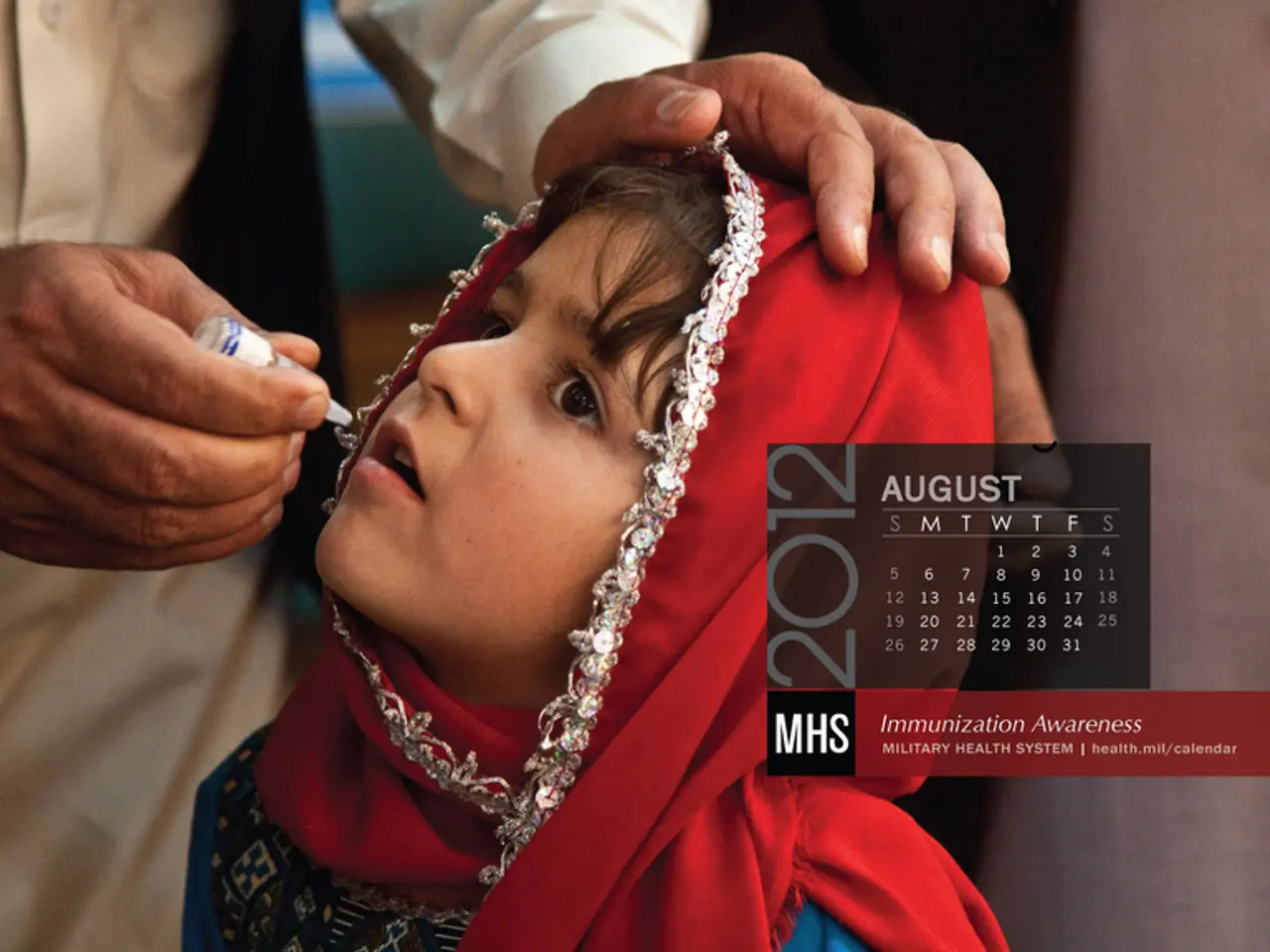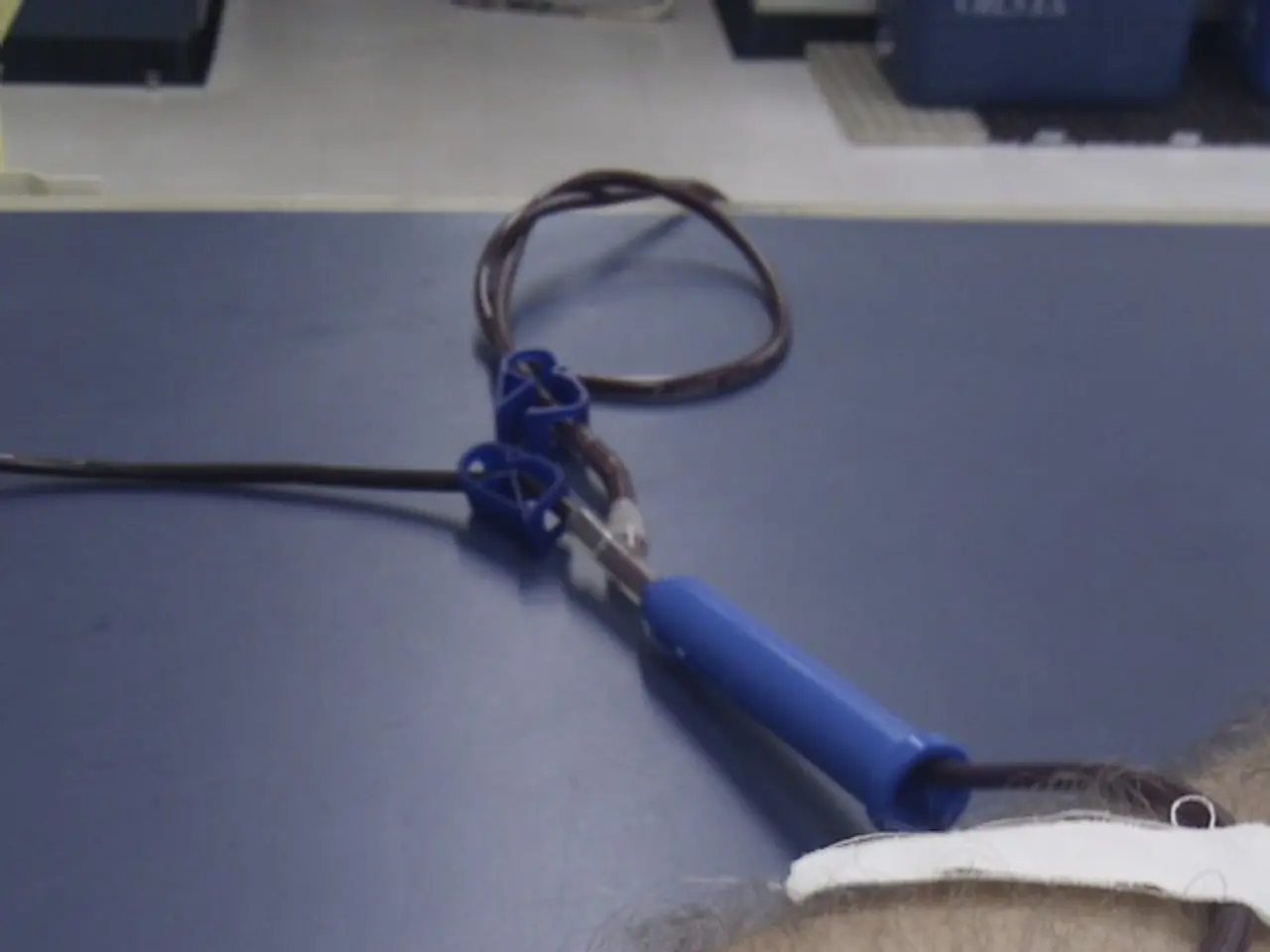Over fourteen million children worldwide remain unvaccinated, according to a fresh alert
In a recent report, the World Health Organization (WHO) and the United Nations Children's Fund (UNICEF) have highlighted the obstacles facing global vaccination efforts, particularly in conflict-affected areas and countries with political instability.
Misinformation and vaccine hesitancy are driving outbreaks of disease in some high-income countries, and these issues are exacerbated in conflict zones where children face additional barriers to immunization. Conflict and instability have severely disrupted healthcare infrastructure and vaccine supply chains, causing population displacement and limiting vaccine access for millions of children.
The report states that conflict-affected countries account for a disproportionate share of global cases of vaccine-preventable diseases (VPDs) such as polio and measles. In the United States, a measles outbreak that originated in a part of West Texas with a low vaccination rate continues to spread, and there have been more measles cases reported in the US this year than any other since the disease was declared eliminated a quarter-century ago.
Despite some improvements in protecting children against certain diseases through routine vaccinations last year, global progress in childhood vaccination has slowed since 2010. The main reason for children not being vaccinated globally is lack of access to vaccines and vaccination services.
While emergency responses such as mobile vaccination teams, negotiated access with armed groups, and humanitarian pauses during ceasefires have provided some respite, these solutions are often temporary and insufficient without long-term peace and systemic rebuilding.
The report also indicates that an additional 5.7 million children have only partial protection due to not receiving all recommended doses of certain vaccine series. Last year, nine countries - Nigeria, India, Sudan, the Democratic Republic of Congo, Ethiopia, Indonesia, Yemen, Afghanistan, and Angola - accounted for 52% of all children who have never received a dose of vaccine.
Globally, 14.3 million children remain completely unvaccinated, and 20% of these children lived in conflict zones in 2023. Alarmingly, half of all unvaccinated children live in just 26 countries marked by fragility, conflict, or humanitarian crises, and the number of unvaccinated children in many of these countries has been rising rapidly in recent years.
The WHO Director-General, Dr. Tedros Adhanom Ghebreyesus, expressed concern about drastic cuts in aid for global vaccination efforts, and Dr. Kate O'Brien, director of WHO's Department of Immunization, Vaccines and Biologicals, stated that rising conflicts and war zones are eroding progress in providing children with immunizations.
However, it's important to note that while misinformation remains concerning, it is not the main reason millions of children remain unvaccinated globally. The US has announced plans to reduce funding for the Global Fund to Fight AIDS, Tuberculosis and Malaria, which could further hinder vaccination efforts.
On a positive note, there has been "incredible improvement" in global coverage of the HPV vaccine, with the percentage of girls receiving a first dose increasing to 31% in 2024. The percentage of girls receiving all the doses of the HPV vaccine recommended in their country increased to 28% in 2024.
UNICEF Executive Director Catherine Russell stated that millions of children remain without protection against preventable diseases, and sustainable improvement in childhood vaccination coverage in these contexts requires coordinated global efforts, long-term conflict resolution, and tackling misinformation alongside extending equitable access to immunization services. Dr. Dan Barouch, director of the Center for Virology and Vaccine Research at Beth Israel Deaconess Medical Center, stated that although there hasn't been a significant retreat in childhood vaccine coverage globally, there hasn't been significant improvement either.
In conclusion, the report underscores the urgent need for global cooperation to address the challenges facing childhood vaccination efforts, particularly in conflict-affected areas and countries with political instability. Achieving vaccination goals requires not only innovative but also sustainable solutions that address the root causes of vaccine hesitancy and ensure equitable access to immunization services for all children, regardless of their geographical location or socio-political circumstances.
- Science and health-and-wellness sectors must collaborate to address the urgent need for global cooperation in achieving vaccination goals, particularly in conflict-affected areas and countries with political instability.
- Misinformation and vaccine hesitancy are not just hindering vaccination progress in high-income countries but also causing significant vaccine disparities, as evidenced by the disproportionate share of global cases of vaccine-preventable diseases (VPDs) in conflict-affected countries.




